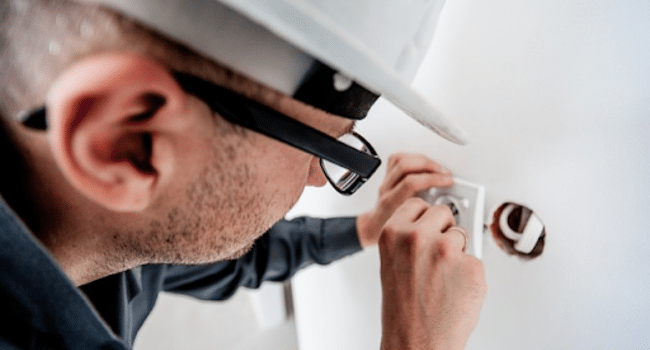Table of Contents
Electrical emergencies can happen in a matter of seconds and usually when you least expect them. In light of the dangers associated with electricity, it’s essential to know what to do when you’re faced with an electrical emergency either at home or in your workplace.
Calling the emergency electrician Melbourne locals rely on is an essential first step in dealing with an emergency. Besides this, there are also a few other steps that you can take to ensure that a minor injury doesn’t escalate into a fire, electrical shock, or fatality.
Simple Steps Will De-Escalate the Emergency
An electrical emergency can be anything from a minor power outage to a more serious sparkling outlet. In some instances, these can be caused by faulty wiring, overloaded circuits or even issues with an outdated switchboard.
No matter what type of electrical emergency you may have to deal with, it’s essential to know how to deal with it. Being prepared and acting as quickly as possible will not only prevent accidents but also save lives and reduce property damage. Our experts have shared a list of the two ways you can deal with an electrical emergency until the electrician arrives.
1. Assess the Situation
The number one rule in any emergency is to remain calm. Panicking can lead to rushed decisions and put everyone at higher risk of injury. When faced with a potential emergency, it’s important to assess the severity of the emergency.
Some issues, such as a tripped circuit breaker, may be a minor issues that your electrician can help you troubleshoot over the phone. More serious issues, such as smoke, a burning smell, and sparks from outlets or the switchboard, will require your electrician to come out to your home. Look around and establish exactly what’s wrong and what could be causing the problem.
Here you want to avoid touching exposed or hot wires and outlets. It’s crucial to convey everything you can see or smell to the emergency electrician. They will then advise you of the steps to take until they arrive.
2. If Possible, Cut the Power
If your electrical emergency involves exposed wires, sparking plugs, outlets, smoke coming out of your switchboard or anything else that could cause an electrical shock or fire, the next step is to switch the power off. Be sure to do this as carefully as possible. Only touch the main power switch.
Although it may only be necessary to switch off the circuit breaker that corresponds to the problem, it’s always a good idea to switch off the main power. This will not only prevent further damage but will reduce the risk of an electrical shock if someone accidentally touches an exposed wire or faulty outlet. Always remember that you can’t always see where an electrical problem is, so the root cause may not be where you think it is.
3. If Necessary, Evacuate
A room filled up with smoke from a burning wire is as dangerous as an actual fire. If you’re having an electrical emergency that involves exposed cables, wires, or anything burning, it’s recommended to evacuate anyone in the home or office.
Check that all your family members and pets, or employees and customers are accounted for. It’s essential to have an emergency evacuation plan at work and at home so that everyone knows what to do in an emergency. Wait for your Commercial Electrician Everett to give you the all-clear before returning to the building.
4. Never Use Water on a Burning Electrical Outlet
If your electrical emergency has already turned into a fire, it’s crucial to never use water to try and extinguish it. Water conducts electricity and can result in severe injury. Electrical equipment that’s already wet or burning shouldn’t be touched with bare hands.
For minor fires, use a fire extinguisher to put it out. You can also use a fire-resistant blanket to put the flames out. Note that this is for small fires only. Be careful not to put yourself or your family at risk by attempting to put out a bigger fire.
5. Avoid Touching Someone Who Has Been Shocked
In an unfortunate event that someone in the home has suffered an electrical shock, it’s essential to avoid touching them. This is because the human body is an excellent conductor of electricity and may pass through to you if you touch the affected person.
Switch the power to the home or office off while someone immediately calls the fire and emergency services. You will also need to call your emergency electrician to come and secure the area.
Final Thoughts
No one plans to have an electrical emergency. However, it’s essential to talk to your family or employees about the procedures to follow in case one happens. It’s a good idea for everyone to have the emergency electrician’s phone number on hand.
That way, anyone will be prepared to deal with the emergency, no, matter who’s at home when it happens. This will give you peace of mind that your family is always prepared in case of an emergency!
Photo by Pixabay
